47 F. high at St. Cloud Monday.
70 F. average high on May 18.
74 F. high on May 18, 2014.
May 18, 1980:
Mt. St. Helens erupted. The smoke plume rose to 80,000 feet. The cloud
circled the earth in 19 days. Brilliant sunsets were seen over Minnesota
for days afterward.
May 18, 1933: Tornadoes hit McLeod and Mower counties. Source: NOAA.
The Gales of...May?Sunday
night was a vivid reminder that only the brave and foolish put their
boats in the water before Memorial Day. Unless you have a sturdy lift or
jet-powered sump pump. Winds gusted over 40 mph in the Twin Cities
metro (tropical storm force), with 50+ mph winds out west.
Snow
coated roads over the Dakotas yesterday; flurries spotted in Minnesota
from Pipestone to Baudette. Hey, it gave us all something to babble
about.
Gale force winds and flurries gave rise to clearing skies;
dry Canadian air setting the stage for a late-season freeze over western
Minnesota. It's another subtle (yet blunt) reminder to avoid the urge
to plant annuals until after Memorial Day. The latest 32-degree or
colder low temperature at MSP? May 24, 1925.
A few plants from
Willmar to Fargo and Brainerd probably froze their buds off this morning
but temperatures mellow as the week goes on. Expect generous sunshine
and a dry sky into
Saturday, probably the best day of the holiday weekend. Showers may pop up
Sunday
and Memorial Day; probably nothing severe to track. We warm up again
next week as sticky air flows north; hints of sweltering evenings to
come.
Yes there's something for everyone in May.
* Monday morning webcams courtesy of MNDOT and
AerisWeather.
Too Close For Comfort.
NOAA has issued Freeze Warnings for the Red River Valley and far
western Minnesota, where winds may subside enough for a frost or freeze
this morning. Winds ease later today and although the immediate metro
area should avoid a frost or freeze Tuesday morning there may be some
frosty issues from Willmar to St. Cloud and Brainerd. Source:
AerisWeather.
Frost Advisory.
NOAA has issued frost advisories as close to the MSP metro area as
Willmar and St. Cloud for this morning. With any luck it won't be a
killing freeze for central Minnesota, where enough of a breeze may
linger to avoid the coldest temperatures.
Predicted 7 AM Temperatures.
NOAA's NAM model suggests temperatures will dip below 32F this morning
across much of the Dakotas, the Minnesota Arrowhead and northern
Wisconsin. Source: AerisWeather.
Pass The Smelling Salts Please.
Here is the accumulated snowfall product, showing a significant smear
of accumulating snow spreading from the Rockies into the Nebraska
Panhandle today and tomorrow. When it snows on green, freshly mowed
lawns people tend to lose their sense of humor. Source: AerisWeather.
Warming Trend.
With some sunshine and less wind today will feel considerably better
than yesterday, even with temperatures well below average. We start to
return to normal by Thursday and Friday; clouds increase late Saturday
with a spattering of showers Sunday and Memorial Day. There are some
signs of a more significant warming the latter half of next week.
Source: Weatherspark.
With Climate Change, Ticks Marching Farther and Earlier. Yes, the ticks are out in full force. Here's an excerpt of a story at
Climate Central: "...
But
in a warming world, May is really too late to get people thinking about
protecting themselves, said Richard Ostfeld, a disease ecologist at the
Cary Institute of Ecosystem Studies
in Millbrook, N.Y. “The nymphs used to peak in June,” he said,
referring to immature ticks, which are most likely to transmit disease.
“Now it’s happening in mid-May, and if you project forward with simple
climate models, it’ll be early May within a couple of decades.” That’s the conclusion of a paper Ostfeld co-authored recently in the journal Philosophical Transactions B, published by Britain’s Royal Society..." (image above courtesy of
tickinfo.com).
Scientists May Have Discovered a Critical Key to Predicting Volcanic Eruptions. Are we closer to a system that can predict volcanic eruptions with some degree of reliability?
Huffington Post has the story; here's an excerpt: "...
Understanding the triggers for volcanic eruptions is vital for forecasting efforts, hazard assessment and risk mitigation," Dr. Janine Kavanagh, a volcanologist at the University of Liverpool
in England and the leader of the team, said in a written statement.
"With more than 600 million people worldwide living near a volcano at
risk of eruptive activity, it is more important than ever that our
understanding of these complex systems and their triggering mechanisms
is improved..."
Animation credit above: "
Video of the experimental model showing the colored water as ascending "magma" in the tank of jelly." (Credit: Janine Kavanagh/University of Liverpool).
Feds Say That Banned Researcher Commandeered a Plane. Well this should give you a nice, warm fuzzy as you board your next flight. Pray it doesn't get hacked.
Wired has the story; here's the intro: "
A security researcher kicked
off a United Airlines flight last month after tweeting about security
vulnerabilities in its system had previously taken control of an
airplane and caused it to briefly fly sideways, according to an
application for a search warrant filed by an FBI agent. Chris Roberts, a
security researcher with One World Labs, told the FBI agent during an
interview in February that he had hacked the in-flight entertainment
system, or IFE, on an airplane and overwrote code on the plane’s Thrust
Management Computer while aboard the flight..." (File image above).
TODAY: Partly sunny, fresh breeze. Winds: NW 10-15. High: 56
TUESDAY NIGHT: Clear and cool. Low: 42
WEDNESDAY: Mix of clouds and sun, still dry. High: 57
THURSDAY: Lukewarm sun, very pleasant. Wake-up: 46. High: 69
FRIDAY: Sunny and spectacular. Wake-up: 51. High: 72
SATURDAY: Plenty of sun, best day of holiday? Wake-up: 52. High: 71
SUNDAY: More clouds, few showers, stray T-shower. Wake-up: 55. High: 70
MEMORIAL DAY: Patchy clouds, isolated T-shower. Wake-up: 54. High: 67
Climate Stories....
Global Warming Fueling Fewer But Stronger Hurricanes, Study Says. Which
matches the trends of what we're seeing in the data, especially during
the warm weather months: fewer storms overall, but the storms that do
spin up have a much better chance of producing excessive rains from the
Upper Midwest to New England. Here's an excerpt from
The Capital Weather Gang: "
Warmer
ocean temperatures appear to be fueling more intense hurricanes at the
expense of the overall number of storms, says a new study published
today in Nature Climate Change.
Over the past decade, studies have analyzed ad nauseam how warmer
temperatures might be changing the annual number of hurricanes, or the
maximum intensity. In theory, the hurricane hypothesis has always been a
simple one: Tropical cyclones are fueled by warm ocean surface water,
so warmer oceans should be fueling stronger hurricanes..."
May CO2 Peak Shows Trend is Up, Up, Up. Here's a clip from an update at
Climate Central: "...
The
amount of heat-trapping carbon dioxide in the atmosphere has been
measured at the observatory atop Hawaii’s Mauna Loa volcano since 1958,
producing a record that shows not only the yearly maximum and minimum
driven by the spring bloom and fall dieback of plants, but also the steady climb in CO2 levels
every year. The last few years have seen a spate of atmospheric CO2
milestones in the Mauna Loa record: The first measurement of CO2 above 400 parts per million (ppm) in May 2013, the first month entirely above 400 ppm in April of last year, and this year will likely see several months with an average above that level..."
Shell Accused of Strategy Risking Catastrophic Climate Change.
The Guardian has the article; here's an excerpt: "
Royal
Dutch Shell has been accused of pursuing a strategy that would lead to
potentially catastrophic climate change after an internal document
acknowledged a global temperature rise of 4C,
twice the level considered safe for the planet. A paper used for
guiding future business planning at the Anglo-Dutch multinational
assumes that carbon dioxide emissions will fail to limit temperature
increases to 2C, the internationally agreed threshold to prevent
widespread flooding, famine and desertification..."
Photo credit above: "
Protesters
rally at the Port of Seattle, Monday, May 18, 2015, in Seattle.
Demonstrators opposed to Arctic oil drilling were showing opposition to a
lease agreement between Royal Dutch Shell and the Port to allow some of
Shell's oil drilling equipment to be based in Seattle." (AP Photo/Ted S. Warren).
Shell Oil's Cold Calculations for a Warming World. Here's an excerpt of a
New York Times Magazine story that made me do a double-take: "...
In
2008, Shell surprised observers by announcing that it had a preferred
scenario. The company would prepare for both outcomes, but for the good
of the world and the good of Shell itself, it hoped for the
carbon-constrained future of “Blueprints.” The oil giant awaited
government action: a market signal in the form of a carbon price. But
when I interviewed him four years later, Bentham admitted to me that the
future, so far, was looking a lot more like the chaos of “Scramble.” We
had no working international climate agreement and no real price on
carbon. Instead, we had a global race for gas, coal and the last drops
of conventional oil..."
Photo credit above: "
Shell's Polar Pioneer drill rig nearing Port Angeles, Wash., aboard a transport ship, on April 17, 2015." Credit Daniella Beccaria/Seattlepi.com, via Associated Press.
What Can We Do About Climate Change? Here's an excerpt of a very interesting interview at
The New York Times: "...
When
coal is burned to produce electricity it produces pollution that kills
more than 10,000 Americans each year, and more than a quarter million
Chinese. In addition it does severe damage to fish, birds and waterways.
And we haven’t even gotten to its contribution to climate change.
Getting off coal will by difficult. Lot’s of things are difficult.
Quitting smoking is difficult. Abolishing slavery was almost
unimaginable for people living in those societies. For centuries
European and American economies depended on coerced labor..." (File image: NOAA).

The Really Awful Truth About Climate Change. Joe Romm at
ThinkProgress has the story - here's a snippet: "...
No,
the really awful truth about climate change is that while climate
scientists, the International Energy Agency, and many others have been
increasingly blunt about how dire our situation is — and what needs to
be done ASAP to avoid catastrophe — much of the so-called intelligentsia
keep ignoring them. The most recent example comes in a report out
earlier this month from 70 leading climate experts (click here)..."
Image credit above: WMO, World Meteorological Organization.

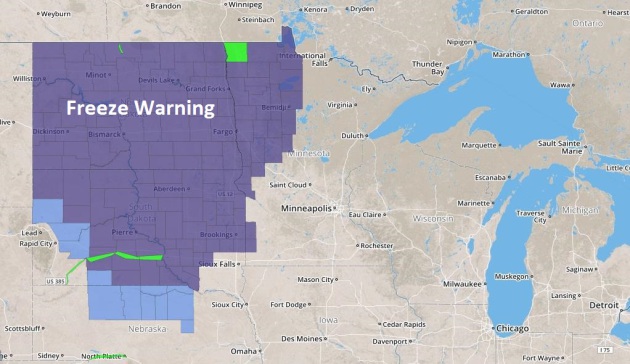
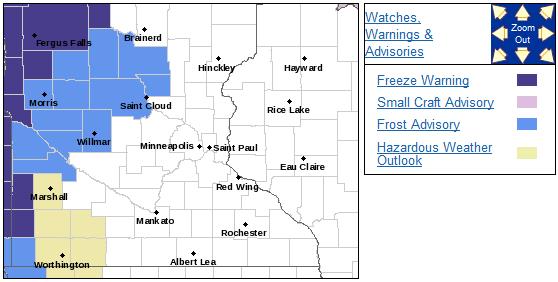
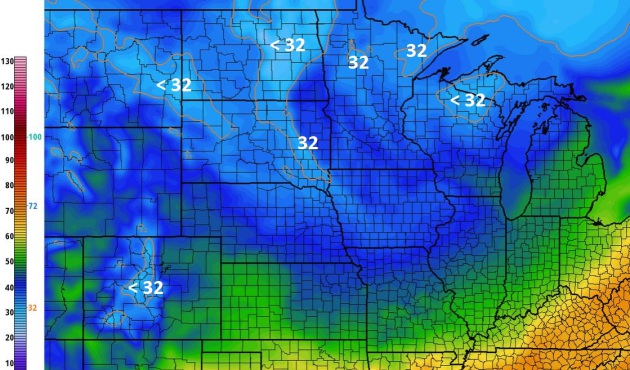
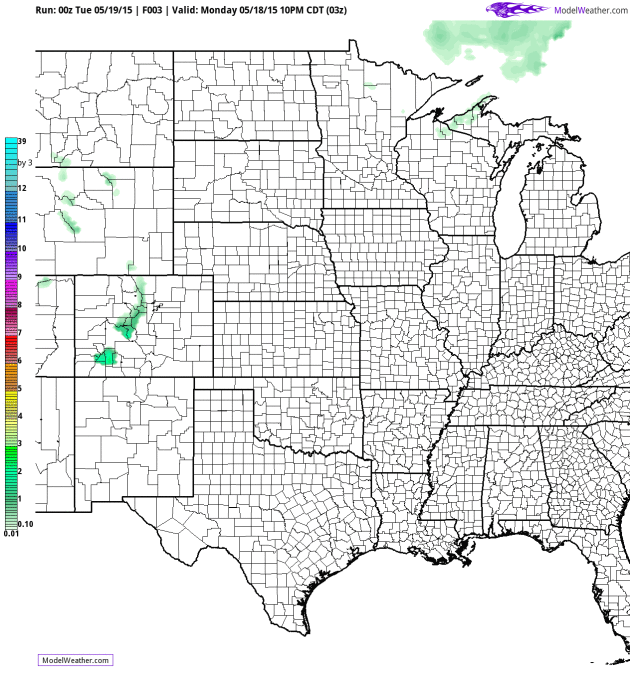
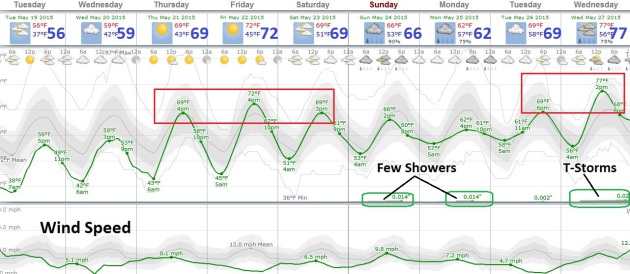

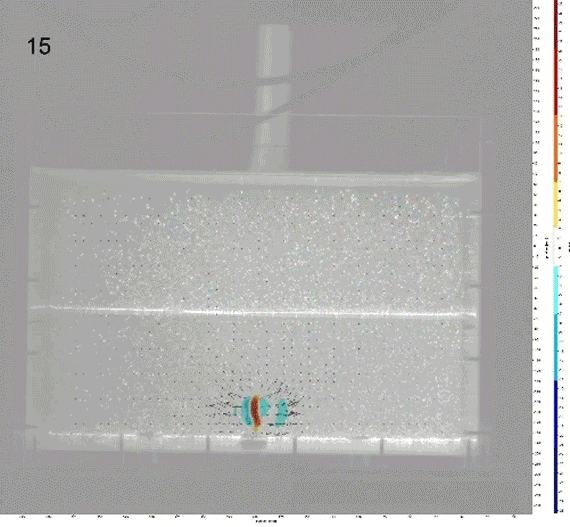

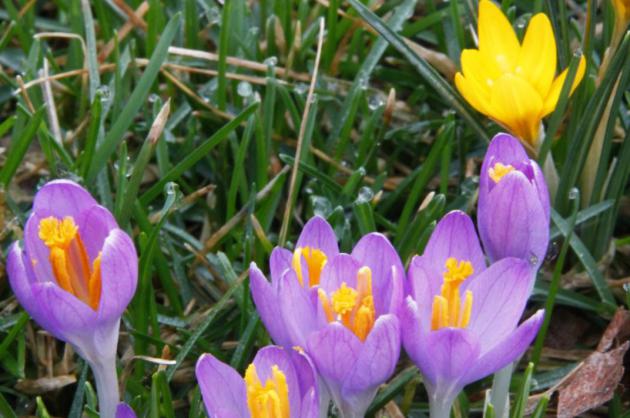
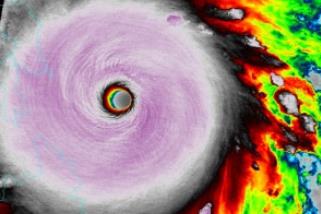
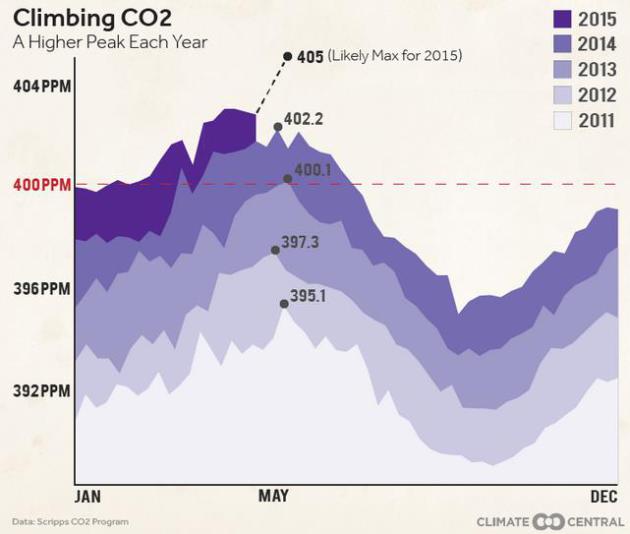

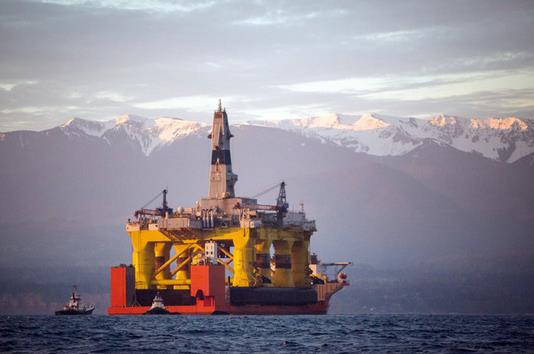

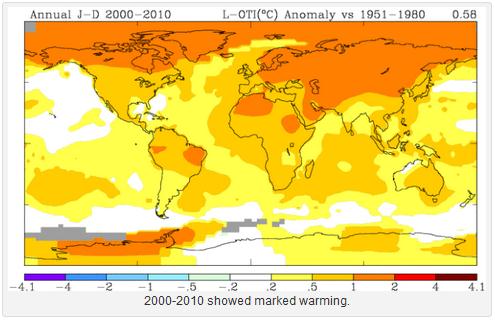
No comments:
Post a Comment